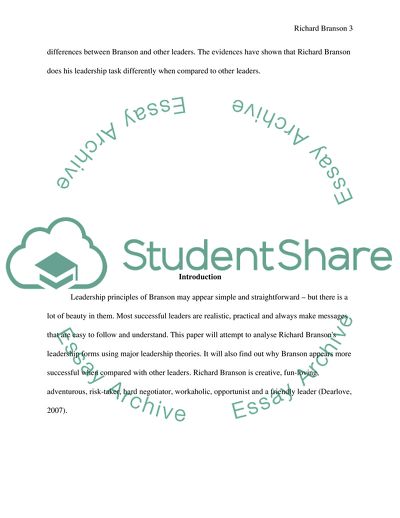Cite this document
(Analysis of Richard Branson Form of Leadership Coursework Example | Topics and Well Written Essays - 1750 words, n.d.)
Analysis of Richard Branson Form of Leadership Coursework Example | Topics and Well Written Essays - 1750 words. https://studentshare.org/human-resources/1861133-organizational-behaviour
Analysis of Richard Branson Form of Leadership Coursework Example | Topics and Well Written Essays - 1750 words. https://studentshare.org/human-resources/1861133-organizational-behaviour
(Analysis of Richard Branson Form of Leadership Coursework Example | Topics and Well Written Essays - 1750 Words)
Analysis of Richard Branson Form of Leadership Coursework Example | Topics and Well Written Essays - 1750 Words. https://studentshare.org/human-resources/1861133-organizational-behaviour.
Analysis of Richard Branson Form of Leadership Coursework Example | Topics and Well Written Essays - 1750 Words. https://studentshare.org/human-resources/1861133-organizational-behaviour.
“Analysis of Richard Branson Form of Leadership Coursework Example | Topics and Well Written Essays - 1750 Words”. https://studentshare.org/human-resources/1861133-organizational-behaviour.


